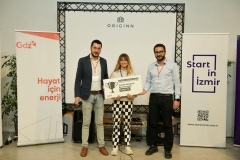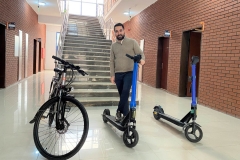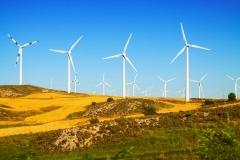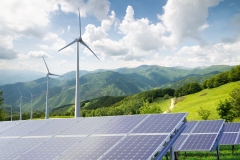
GRADUATE SCHOOL
Sustainable Energy (Without Thesis)
SEN 557 | Course Introduction and Application Information
| Course Name |
Advanced Energy Project
|
|
Code
|
Semester
|
Theory
(hour/week) |
Application/Lab
(hour/week) |
Local Credits
|
ECTS
|
|
SEN 557
|
Fall/Spring
|
3
|
0
|
3
|
7.5
|
| Prerequisites |
None
|
|||||
| Course Language |
English
|
|||||
| Course Type |
Elective
|
|||||
| Course Level |
Second Cycle
|
|||||
| Mode of Delivery | - | |||||
| Teaching Methods and Techniques of the Course | - | |||||
| Course Coordinator | ||||||
| Course Lecturer(s) | ||||||
| Assistant(s) | - | |||||
| Course Objectives | This course is specifically designed to teach master students how to prepare team projects in domestic and international energy issues. Project topics could be any subject dicussed througout the program such as domestic energy projects, international energy security and geopolitics etc. Students working in a team will improve their skills related to project management by managing on the project proposal, literature review, data collection and processing, reporting and presentation. Successful completion of this course will be an important indicator of competence on advanced energy related issues. |
| Learning Outcomes |
The students who succeeded in this course;
|
| Course Description | Within the scope of the teamwork groups of three students (max four) will prepare a project with the guidance of an assigned supervisor covering the related issues discussed throughout the program including international energy security and geopolitics, and they will present their projects at the end of the semester. In an ideal project it is expected to adopt the students an analytical approach by combining their theoretical and practical knowledge on advanced energy issues and work from a different perspective. During the semester, students improve their skills related to project management by managing on the project proposal, literature review, data collection and processing, reporting and presentation. |
|
|
Core Courses | |
| Major Area Courses | ||
| Supportive Courses | ||
| Media and Management Skills Courses | ||
| Transferable Skill Courses |
WEEKLY SUBJECTS AND RELATED PREPARATION STUDIES
| Week | Subjects | Related Preparation |
| 1 | Introduction | |
| 2 | Discussions on research questions and potential research topics | Lecture notes on basic and current issues on domestic and international energy |
| 3 | Developing research question and determining an appropriate analytical framework | Lecture notes on Microsoft Office Programs, Literature Review, Data Collection and Processing, Reporting and Presentation |
| 4 | Project Team Assignment | Project Selection and Team Creation |
| 5 | Determining project requirements and Introduction to project management | Regular meeting with advisors |
| 6 | 15min Semester report presentations | Regular meeting with advisors |
| 7 | 15min Semester report presentations | Regular meeting with advisors |
| 8 | Inclass project activities | Revision of proposals |
| 9 | Project start up and execution | Regular meeting with advisors |
| 10 | Writing project progress report | Regular meeting with advisors |
| 11 | 20min Semester report presentations | Regular meeting with advisors |
| 12 | 20min Semester report presentations | Regular meeting with advisors |
| 13 | Project performance management | |
| 14 | 30min Semester report presentations | Regular meeting with advisors |
| 15 | 30min Semester report presentations | Regular meeting with advisors |
| 16 | Review of the Semester |
| Course Notes/Textbooks | Lecture Notes and PowerPoint presentations |
| Suggested Readings/Materials |
EVALUATION SYSTEM
| Semester Activities | Number | Weigthing |
| Participation |
12
|
10
|
| Laboratory / Application | ||
| Field Work | ||
| Quizzes / Studio Critiques | ||
| Portfolio | ||
| Homework / Assignments | ||
| Presentation / Jury |
1
|
40
|
| Project |
1
|
50
|
| Seminar / Workshop | ||
| Oral Exams | ||
| Midterm | ||
| Final Exam | ||
| Total |
| Weighting of Semester Activities on the Final Grade |
100
|
|
| Weighting of End-of-Semester Activities on the Final Grade | ||
| Total |
ECTS / WORKLOAD TABLE
| Semester Activities | Number | Duration (Hours) | Workload |
|---|---|---|---|
| Theoretical Course Hours (Including exam week: 16 x total hours) |
16
|
3
|
48
|
| Laboratory / Application Hours (Including exam week: '.16.' x total hours) |
16
|
0
|
|
| Study Hours Out of Class |
15
|
6
|
90
|
| Field Work |
0
|
||
| Quizzes / Studio Critiques |
0
|
||
| Portfolio |
0
|
||
| Homework / Assignments |
0
|
||
| Presentation / Jury |
1
|
37
|
37
|
| Project |
1
|
50
|
50
|
| Seminar / Workshop |
0
|
||
| Oral Exam |
0
|
||
| Midterms |
0
|
||
| Final Exam |
0
|
||
| Total |
225
|
COURSE LEARNING OUTCOMES AND PROGRAM QUALIFICATIONS RELATIONSHIP
|
#
|
Program Competencies/Outcomes |
* Contribution Level
|
||||
|
1
|
2
|
3
|
4
|
5
|
||
| 1 | To improve theoretical and conceptual proficiencies as well as applied competencies on energy studies. | |||||
| 2 | To evaluate the problems and circumstances about energy systems by using theoretical and practical knowledge in fundamental disciplines of energy studies such as economics, natural sciences, political science, law, and sociology. | |||||
| 3 | To analyze multi-dimensional problems which are faced and unpredicted in energy system by taking over responsibility as an individual and a group member. | |||||
| 4 | To evaluate the relationships between factors in energy policies and applications such as structures, markets, institutions, regulations, climate change and environment in a critical perspective. | |||||
| 5 | To debate problems in sustainable energy development by identifying them. | |||||
| 6 | To argue positive and negative aspects of international affairs and geopolitics on energy. | |||||
| 7 | To examine the economic and political structure that energy systems are based on. | |||||
| 8 | To question the theoretical and empirical gaps in energy studies literature by developing original arguments in order to fill these gaps in the literature. | |||||
| 9 | To interpret the collected data that would measure the theories, scenarios and concepts as variables by using scientific research methods in energy sciences and sustainable energy development field. | |||||
| 10 | To prepare an original thesis/term project about political, economic, environmental, social and/or historical dimensions of sustainable energy and geopolitics in accordance with scientific criteria. | |||||
| 11 | To develop foreign language skills to be able to follow the literature on energy studies and to communicate with international scholars. | |||||
| 12 | To be able to use data and information in advanced levels in the field of energy sciences. | |||||
| 13 | To have ethical, social and scientific values in the stages throughout the processes of collecting, interpreting, disseminating and implementing data relevant to energy studies. | |||||
*1 Lowest, 2 Low, 3 Average, 4 High, 5 Highest
NEWS |ALL NEWS

‘Double award’ for energy efficiency
Izmir University of Economics (IUE) received a double award at the ‘Innovative Idea Development Workshop in the Electricity Distribution Sector’ organized with

International investment for ‘Scootable’
Emrecan Durmaz, a student of Izmir University of Economics (IUE), who developed the software infrastructure that enables electric scooters and bicycles to

‘Social' analysis of energy’
Prof. Dr. Mehmet Efe Biresselioğlu from Izmir University of Economics (IUE) has implemented the ‘Cure’ project with 2 countries to measure the

